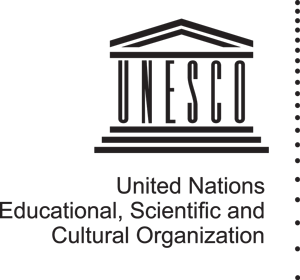 New York, 18 September 2017
New York, 18 September 2017
Her Excellency Ms Keïta Aminata Maïga, the First Lady of Mali,
Her Excellency Ms Jeanette Kagame, First Lady of Rwanda,
Excellencies,
Ladies and Gentlemen,
Thank you, Professor Magrab, dear Phyllis.
Thank you all for joining us today.
My special thanks go to the First Ladies, for your courage and strength.
As you know, this event is part of the Global Hope Coalition, which I am proud to have helped found, with 23 leaders, women and men, from across the world, champions for human rights, women’s empowerment, dialogue and peace….and I see many of them here today.
This is vital at a time when we see terrorist attacks in every region, we see minorities persecuted, we see the rights of refugees denied, we see humanity’s heritage pillaged, we see the minds of young people poisoned with hatred…
Women and children stand on the frontline of this struggle, and shoulder its heaviest burdens.
Violent extremists are killing children and women.
They are violating the rights and dignity of children and women.
Children and women are victims of abuse, slavery, trafficking, forced and early marriage, female genital mutilation.
This affects all communities and religions — Muslims, Yezidis, Shabaks, Assyrians, Christians.
All this is part of a wider strategy of ‘cultural cleansing’ led by violent extremists, to undermine the grounds for peace.
At the same time, girls and women are increasingly vulnerable to the lure of radicalisation.
Today, more than 25,000 foreign terrorist fighters are active in conflict zones and areas of tension across the world.
These include increasing numbers of young women, snared by false promises and distorted teachings of faith, led astray by a global propaganda campaign on the Internet.
Far too many young women cross from the ‘virtual’ to the ‘physical,’ enrolling with extremist groups, to marry young men, to support the cause of violence.
I am convinced we face a new global battle for hearts and minds, and women and children are at the heart of it.
We must respond with the most powerful weapon we have.
On International Women’s Day 2016, we held a seminar at UNESCO on women and radicalisation, and I remember the words of Assiatou, 15 years old, who had been abducted by Boko Haram, telling us about her hopes for a better future thanks to education, her aspiration to become a doctor through study…
Malala Yousafzai, Nobel Prize Laureate, put it this way:
One child, one teacher, one pen and one book can change the world.
This reminds me also of the writing I saw on the wall in the Ayseha-e-Durrani Girls’ School in Kabul:
The pen is mightier than the sword.
Education is the best way to disarm processes that can lead to violent extremism, and to address the trauma of its impact.
I mean education for inclusion, dialogue and tolerance.
I mean quality education for every boy and girl.
For education to transform lives, it must itself be transformative, delivered in safe learning environments, through gender-responsive pedagogy.
These goals guide all UNESCO’s action to prevent violent extremism through education, through support to girls and women, through freedom of expression, through the struggle against radicalisation on the Internet, through action for youth engagement all around the Mediterranean.
We have launched two tools on the nuts-and-bolts of education for peace — a Teachers’ Guide on the Prevention of Violent Extremism and a Guide for Policy-Makers on the Prevention of Violent Extremism through Education.
We are building capacity for educators in Albania, Bosnia Herzegovina, Serbia, Kazakhstan, Kyrgyzstan, Tajikistan, and Uzbekistan.
We lead similar work in West Africa, with the International Organisation of La Francophonie.
Every girl and woman must be free to make their own choices, to live without fear.
This inspires UNESCO’s work through the Global Partnership for Girls and Women’s Education, through our Joint Programme with UN Women and UNFPA, through the Malala Fund for Girls’ Right to Education — where we have supported Nigeria in its efforts to release girls abducted by Boko Haram, promote awareness on the safety of teachers, create a safer learning environment.
Empowered girls and women are the strongest defences of reconciliation and peace.
We all know the landmark United Nations Resolution 1325, calling for women’s participation in peace-building and their protection from conflict-related, gender-based violence.
Seventeen years later, we see strong examples across the world.
In Liberia, Christian and Muslim women joined hands to force male warlords to compromise, ending the 2003 civil war – earning the Nobel Peace Prize.
From Colombia to Cambodia to the Congo, women have bridged conflicts in situations when men couldn’t.
I have seen this for myself in Mali, where UNESCO helped rebuild the Mausoleums of Timbuktu — I believe the same power has been essential in Rwanda to rebuild after the 1994 genocide.
This is why this Meeting is so important — I want to forge a global alliance of political and community leaders to empower girls and women in preventing violent extremism.
This is the importance of First Ladies, as role models, as advocates, as peacebuilders.
Thank you.
